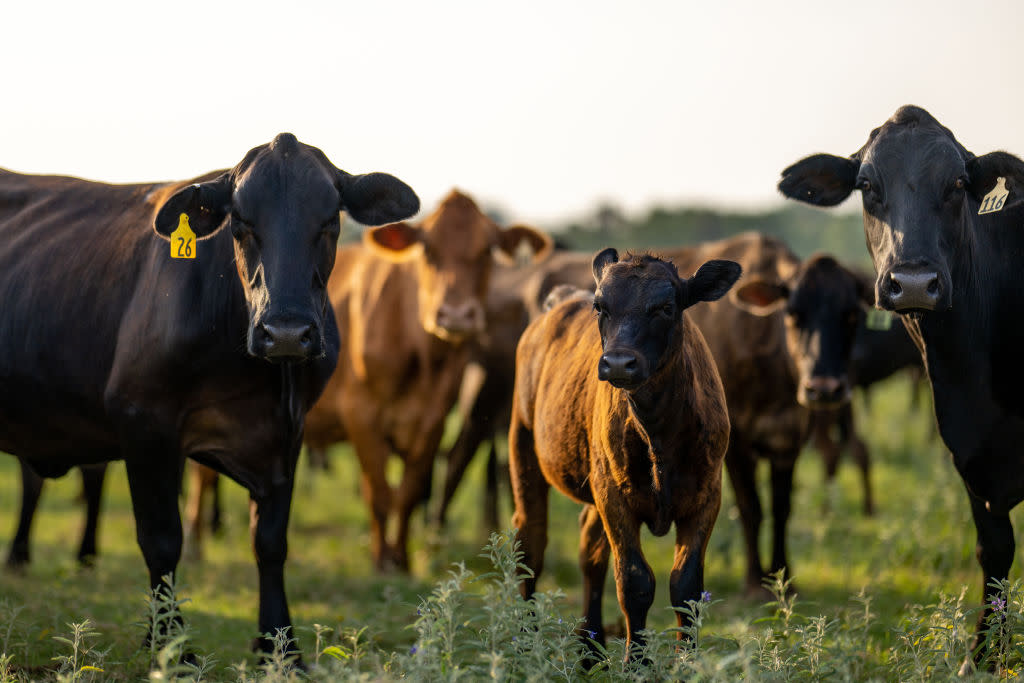'Climate-friendly' beef is another instance of greenwashing

Food processing companies Tyson Foods and Schweid & Sons have collaborated and recently released the first "climate-friendly" beef burger approved by the U.S. Department of Agriculture (USDA), as part of Tyson's Climate-Smart beef program. However, the designation may be misleading, as some experts believe there is no way to make beef consumption climate-friendly.
How bad is beef for the environment?
Eating meat significantly increases your carbon footprint, and beef is one of the worst culprits. A 2022 study found that beef production produces over 99 kilograms of greenhouse gas emissions per kilogram of meat, far higher than any other meat. Cattle, for both meat and dairy purposes, is "the animal species responsible for the most emissions," and accounts for approximately 65% of the livestock sector's emissions, according to the Food and Agriculture Organization of the United Nations.
The environmental impacts of beef come from feed production and the animals' digestive processes. Synthetic fertilizer is used to grow feed, which pollutes waterways and requires high levels of land use. Cows are also ruminants, meaning they release methane, a greenhouse gas much more potent than carbon dioxide, through their digestion, DW wrote. "A quarter of global greenhouse gas emissions in the food industry are said to result from beef production alone."
A 2020 study also found that even meat deemed organic is just as bad for the climate as meat that isn't. "Even in the worst case scenarios, the environmental footprint of not only vegan diets but low meat diets are much, much better than high meat consuming diets," Peter Scarborough, a professor of population health at Oxford told The New York Times.
What makes the beef 'climate-friendly?'
Tyson's Brazen meat line, deemed climate-friendly by the USDA, has "demonstrated a 10% greenhouse gas (GHG) emissions reduction as compared to the standard emissions for conventionally raised beef," according to a press release by Schweid & Sons. Tyson also claims that the 10% reduction is just the beginning and they're "committed to improving … emissions reduction over the next five years and beyond," per the Brazen website.
The brand also wrote that it "worked with researchers, technical experts and suppliers to track and reduce emissions from pasture to production as compared to emissions for conventional beef," specifically raising crops "using agricultural practices that can help reduce GHG emissions," as well as using different ranching and packaging practices. However, the company failed to go into specifics on where the emissions and pollution data is coming from, nor did it describe what criteria it used in determining climate-friendliness, instead saying it "developed the first-of-its-kind model to collect, evaluate and estimate GHG emissions data."
Is it really climate-friendly?
This may be just another instance of greenwashing, which is "using language that intentionally misleads the public into believing that something is environmentally friendly," Time wrote. "It's a complete and utter mystery how this product qualifies as "climate-friendly," the source continued, emphasizing the glaring lack of information on what baseline was used for evaluation.
On the Brazen website, the company cited practices like reduced tilling and planting cover crops, both of which help with soil health in agriculture, but "haven't been proven to cut emissions," Vox reported. Practices like pasture rotation and manure management are also mentioned which can reduce emissions, but not by much. "These are razor-thin distinctions in a country that already produces meat incredibly efficiently, and our tools are not cut out [to measure] these thin margins," Matthew Hayek, an assistant professor of environmental studies at New York University, told Vox. "You can't call that [climate-friendly], in any good conscience."
Emissions are also not the only environmental harm from beef production, but the climate-friendly label doesn't take that into account. "Focusing exclusively on carbon emissions seems wildly myopic for a federal program that certifies products as climate-friendly," and "the low bar to certification could de-incentivize producers from making bigger changes," Time continued.
Also, a "climate-friendly" label is misleading to consumers. "Beef is always going to be and always will be the worst [food] choice for the climate," Scott Faber of the nonprofit Environmental Working Group told Vox. "And no amount of wishful thinking is going to change that."

